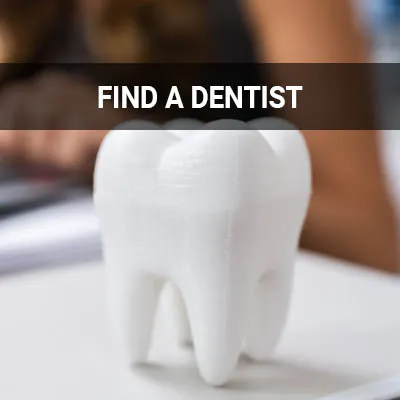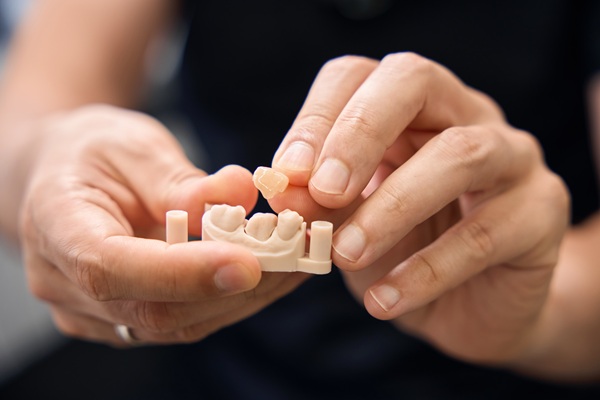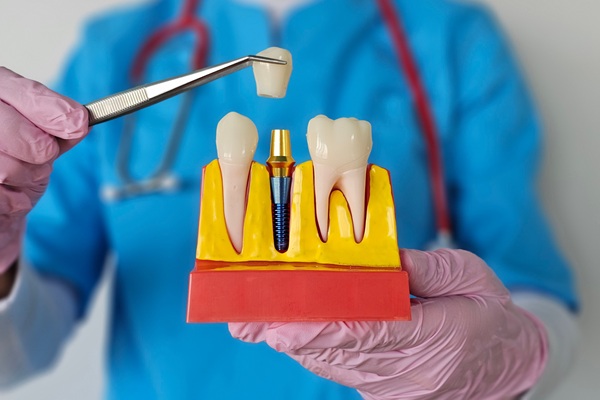Dental Procedures Middletown Township, NJ
For many patients, dental procedures may help restore their quality of life. Issues with teeth and gums usually do not get better over time. Dental procedures are necessary to maintain your overall health.
Dental procedures are available at Premier Dental of Middletown and the surrounding area. Going without proper dental treatment may severely hamper your quality of life. Call us today at (848) 351-8059 to learn more and schedule an appointment.
Who Needs Treatment
Keeping up with routine dental procedures is integral to maintaining one's oral health. Doing so can also help patients and their dentists catch any forming problems that require more involved attention. Patients may require various dental procedures (such as dental fillings, dental crowns, root canals, tooth replacements, root scaling and planing, and tooth extractions) if they are dealing with tooth decay, tooth damage, or gum disease. Many different factors can cause tooth damage, such as teeth grinding (bruxism) or trauma. Our qualified team works closely with our patients to provide them the best, individualized treatment plan.
“Patients may require various dental procedures … if they are dealing with tooth decay, tooth damage, or gum disease.”
Tooth Fillings
The standard protocol to treat a cavity involves removing the decayed portion of the tooth and filling the space left behind. However, according to WebMD, dentists may also utilize fillings to repair teeth that are cracked, broken, or otherwise damaged. Typically, the dentist will inject a local anesthetic into the area around the tooth and begin removing the decayed area with a drill, air abrasion instrument, or laser. The dentist will then clean the cavity of any remaining bacteria or debris in preparation for the filling. There are many different types of fillings available. Our team will help you decide the right type for you.
“… dentists may also utilize fillings to repair teeth that are cracked, broken, or otherwise damaged.”
Dental Crowns and Dental Bridges and Root Canals
Dental crowns are tooth-colored caps used as a tooth replacement option for patients with damaged or weak teeth. They are most common after a root canal treatment since removing a good amount of natural tooth structure during the procedure is necessary. Crowns can consist of various dental materials, including porcelain, ceramic, zirconia, metal, and composite resin. The type of material used depends on many factors, including:
- How much natural tooth is remaining
- How much of the tooth will show when smiling
- The color of the surrounding teeth
- The function of the tooth that needs the crown
- The location of the tooth
- The position of gum tissue
Root canal treatment involves removing inflamed or decayed tooth roots from an infected pulp. They are often a result of facial or dental trauma, severely decayed teeth, frequent dental treatment, faulty or dysfunctional crowns, and damaged (chipped, cracked, or broken) teeth. In most cases, we will restore the tooth with a filling or crown after a root canal procedure.
“Dental crowns are tooth-colored caps used as a tooth replacement option for patients with damaged or weak teeth.”
Check out what others are saying about our dental services on Yelp: Dental Procedures in Middletown Township, NJ
Tooth Replacement Options
There are a variety of tooth replacement options available for patients with dental or facial trauma, genetic or behavioral conditions, and prior dental treatments. Tooth replacements include implants, bridges, partial and complete dentures, and crowns. Replacing a tooth is often necessary to maintain proper oral function and restore speech, eating, and breathing. We will discuss tooth replacement options with patients when the need arises.
Scaling and Root Planing
Scaling and root planing, commonly called a deep cleaning, is a procedure performed to treat or prevent the progression of gum disease. During scaling and root planing, we use a special scraping tool to remove plaque from the surfaces of teeth and then smooth out the roots. This allows the gums to properly heal and reattach to the teeth. A deep cleaning is usually needed when a patient's teeth and gums are worn or decayed. We will discuss this treatment option when we first spot signs of developing gum disease.
“Scaling and root planing, commonly called a deep cleaning, is a procedure performed to treat or prevent the progression of gum disease.”
Questions Answered on This Page
Q. Why do I need routine dental treatment?
Q. What are some of the reasons one might need a tooth extraction?
Q. Why might I need dental crowns, dental bridges, or root canals?
Q. What tooth replacements options are available?
People Also Ask
Q. What happens during a routine dental checkup?
Q. What other resources can I use to find a dentist?
Q. Do I need a tooth extraction?
Q. What can a dentist do to fix my chipped tooth?
Q. What are fluoride treatments?
Q. What happens during a routine dental checkup?
Q. What should I know before beginning my search for a dentist?
Tooth Extractions
Though wisdom tooth extractions are the most common, there are several other reasons patients may need to remove their teeth. These include but are not limited to crowding, excessive tooth decay, and tooth infection. While removing visible teeth is relatively simple, removing teeth that are below the surface, broken, or impacted may require a more involved procedure. In a simple extraction, the patient will receive a local anesthetic to numb the area while the dentist loosens and removes the tooth. In a more involved extraction, the patient may receive both local and intravenous (IV) anesthesia to render them unconscious throughout the procedure.
“Though wisdom tooth extractions are the most common, there are several other reasons patients may need to remove their teeth.”
Frequently Asked Questions
Q. Do most dental procedures hurt?
A. We administer an anesthetic for most non-routine dental procedures to keep patients comfortable and pain-free during treatment. In many cases, patients may feel soreness, tenderness, and slight discomfort following a procedure due to the pressure put on the teeth and gums. However, this should dissipate within the first few hours or, at the most, a few days.
Q. How much do dental treatments cost on average?
A. Every dental procedure differs in the materials used, extent of decay, and length of time. As such, the cost of each procedure is discussed after an examination appointment in which we can properly determine what the treatment will entail. It is a good idea to also discuss your dental package with your insurance provider.
Q. How long do dental crowns last?
A. Dental crowns have become quite durable with recent advancements in dental technology. Most crowns, depending on the material used, can last from five to 15 years with adequate care and maintenance. We will discuss a crown's possible longevity with the patient during their placement appointment and provide them with healthy hygiene habits to adopt.
Q. How can I properly care for and maintain healthy teeth at home?
A. Basic brushing is not enough to maintain healthy teeth and gums, especially following any dental treatments. We recommend patients brush their teeth two to three times daily, rinse after each meal, and floss at least once a day. It is also important to avoid sticky, hard, sugary, and acidic foods and beverages that easily decay the teeth. Lastly, make sure to visit your dentist regularly for a biannual checkup and cleaning.
Q. When does pain become abnormal after an extraction or root canal treatment?
A. Extensive procedures, such as extractions, root canals, and surgeries, often have the longest recovery time. However, anti-inflammatory and pain medications should help with swelling and healing. Patients should not experience pain for longer than two weeks. Give us a call if you are experiencing pain for longer than the ascribed time for your procedure type.
Dental Terminology
Quality Dental Services Can Transform Your Smile
By visiting us as soon as possible, our team can help get you the professional treatment you need. Instead of waiting around and allowing the symptoms to get worse, we can provide you with stronger medication and treatment options instead of ineffective store-bought products.
Helpful Related Links
- American Dental Association (ADA). Glossary of Dental Clinical Terms. 2025
- American Academy of Cosmetic Dentistry® (AACD). Home Page. 2025
- WebMD. WebMD’s Oral Care Guide. 2025
About our business and website security
- Premier Dental of Middletown was established in 2025.
- We accept the following payment methods: American Express, Cash, Discover, MasterCard, and Visa
- We serve patients from the following counties: Monmouth County and Middlesex County
- We serve patients from the following cities: Middletown Township, Red Bank, Lincroft, Hazlet, Holmdel, Tinton Falls, Long Branch, Matawan, Mount Pleasant, Keyport, Keansburg, Atlantic Highlands, Fair Haven and Old Bridge
- National Provider Identifier Database (1790122547). View NPI Registry Information
- Norton Safe Web. View Details
- Trend Micro Site Safety Center. View Details
Back to top of Dental Procedures














